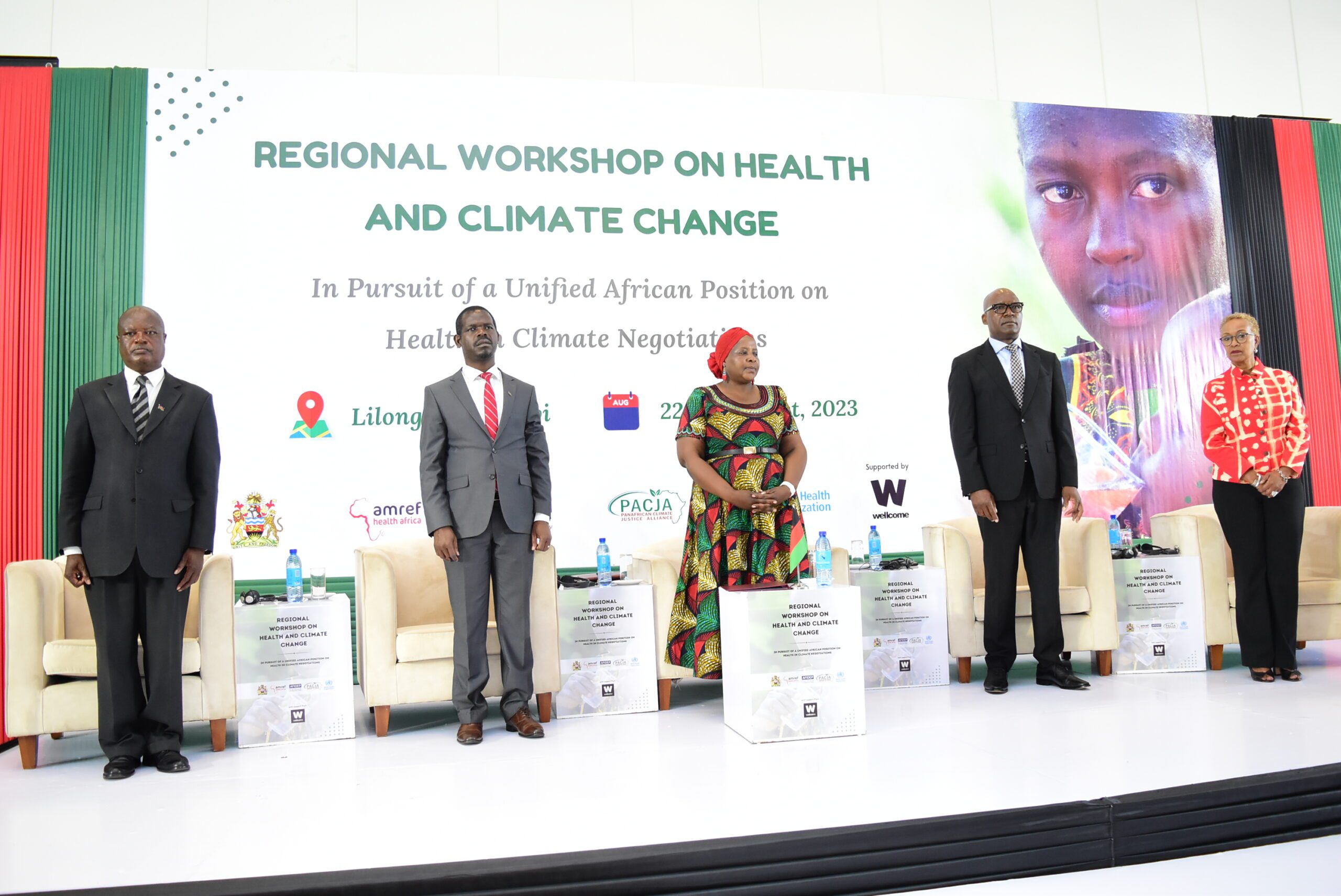

The adverse effect of climate change on health has drawn various stakeholders, led by Amref Health Africa, to collaborate with various partners and find a lasting solution.
Amref Health Africa, Kenya, the Government of Malawi, Pan African Climate Justice Alliance (PACJA), the African Institute for Development Policy (AFIDEP) and the World Health Organization (WHO), last week hosted a regional workshop on climate change and health, bringing together an assembly of state and non-state actors, experts, and leaders in the health and climate change sectors.
The workshop aimed to build consensus, share insights, and amplify Africa’s common position on health within the context of climate change, with the ultimate goal of fostering sustainable and comprehensive policies that prioritise health and the environment.
It also addressed the profound impacts of climate change on health, exacerbating vulnerabilities to diseases and malnutrition.
The impact of climate change, according to health experts, has far-reaching consequences, amplifying existing health inequalities and hindering the progress of vital agendas like the 2030 Sustainable Development Goals and the 2063 Africa Agenda.
Dr Githinji Gitahi, the Group CEO, of Amref Health Africa, said that health had been ignored for a long time in climate discussions, yet it presents the direct consequences of climate change.
“It is imperative that we fully integrate health into the climate justice dialogue,” said Dr Gitahi. “By doing so, we can foster more comprehensive strategies that safeguard the well-being of communities while addressing the global climate crisis”.
Various countries including Kenya, Mozambique and Malawi have reported adverse effects of climate change. In Kenya, there are increased cases of cholera attributed to lack of clean water, and malnutrition due to food insecurity.
Mozambique and Madagascar are affected by a cyclone that formed in February off the coast of Australia, whereas heavy rains witnessed have caused flooding and landslides in Malawi, causing a health crisis as a result of a cholera outbreak. Malawi has recorded over 42,000 cumulated cases and 1,400 deaths.
Experts have attributed the cyclone to the warming of the oceans, fearing that Africa may face more effects of climate change, which may trigger more diseases, and cripple an already strained healthcare system.
Khumbize Kandodo Chiponda, Member of the Parliament and Minister for Health, Malawi, backed a call to find lasting solutions to climate change.
“Today marks the unity of purpose as we craft a collective stance to confront the huge threats that climate change poses to public health across Africa. Our voices unite to advocate for a common position that transcends boundaries, resonates through diverse sectors, and rallies for escalated funding. This funding is the lifeline needed to safeguard both the health and the future of our communities,” said Chiponda.
Dr Mithika Mwenda, Executive Director of the Pan African Climate Justice Alliance (PACJA), underscored the critical need for enhanced financial support.
“In the global multilateral funding systems, only 0.5 per cent of funding is allocated to the health sector,” said Dr Mwenda.
WHO also weighed in on the importance of integrating health considerations within climate discussions, adding that there is a need to unite forces and mobilise health arguments and evidence to effectively reshape the climate narrative.
Mr Ephraim Mwepya Shitima, Chairperson of the African Group of Negotiators (AGN), and Werani Chilenga, the Chairperson of the Parliamentary Committee on Natural Resources and Climate Change in Malawi, emphasised the necessity of cohesive strategies.
“As we navigate the intricate links between climate change and health, it’s imperative to chart a course that enhances resilience and sustainable development,” said Mwepya.
The decision from the workshop also aims at shaping policy decisions, driving advocacy efforts, and guiding collaborative actions leading up to COP28.
Article first published on https://www.standardmedia.co.ke/health/health-science/article/2001480223/health-adversely-hit-by-climate-change-experts-say
Achuman Emoni stretches her hands, illustrating the vast distance she has travelled to reach the…
During a session held at Africa Health Agenda International Conference in Kigali, Rwanda, on 4th…
Amref Health Africa, in collaboration with the Turkana County Department of Health Services, introduced the…
Amref Health Africa, in collaboration with the Turkana County Department of Health Services, introduced the…
Over the past six years, Amref Health Africa has positioned itself as a leading voice…
Africa has made significant strides in advocating for health research and development, yet gaps in…